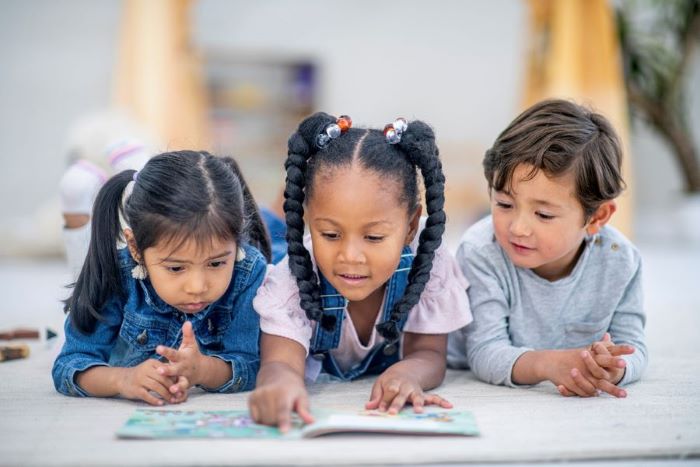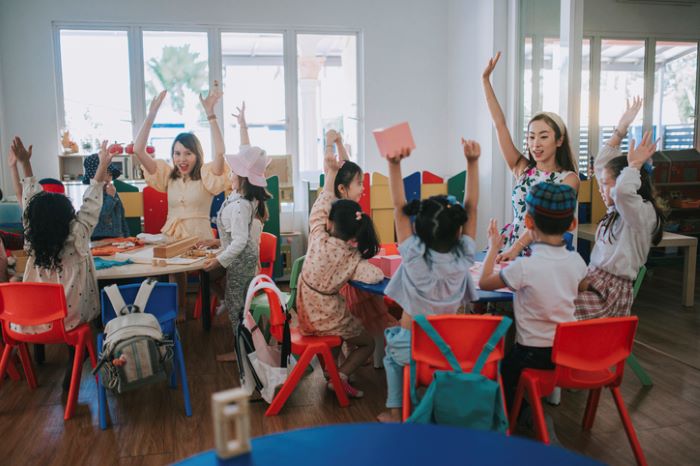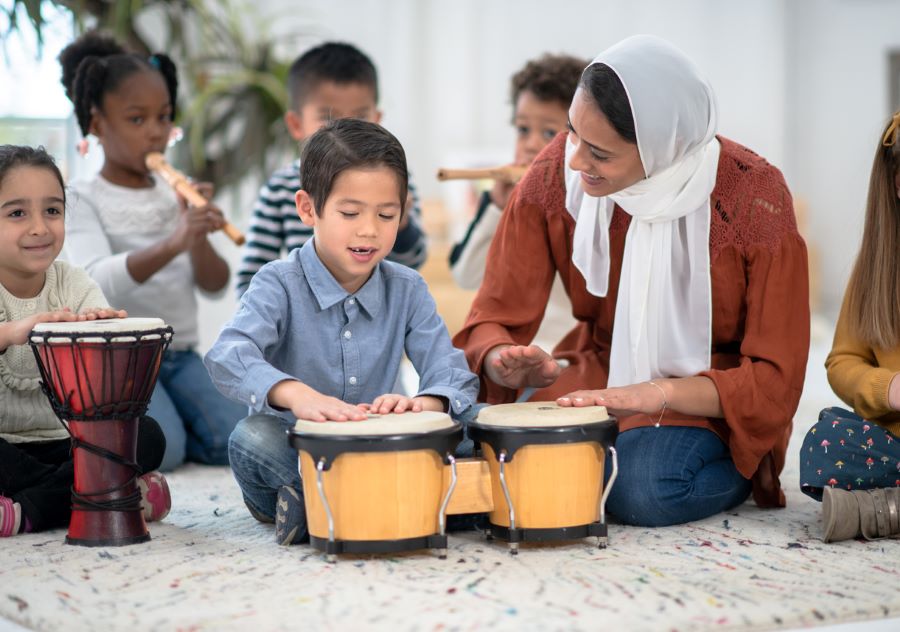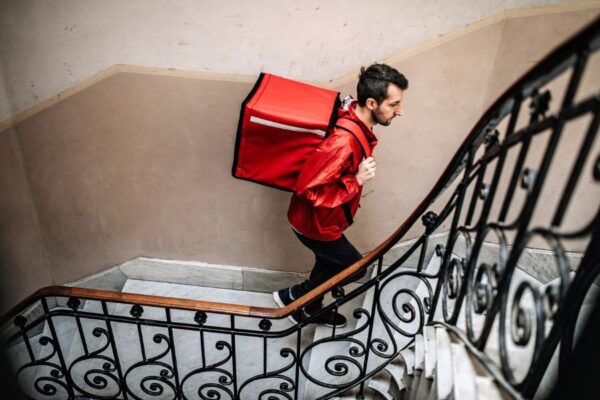Child Care Cultural Supports Set Up Kids for Lifetime of Success
Social and behavioral scientists, educators and scholars are discussing the effects of the COVID-19 pandemic on children, yet often they’ve scarcely solicited input from the one group that needs to be part of the conversation: child care providers. While academia tosses around terms such as “developmental psychopathology,” crafts case-controlled studies and pens findings in science journals, child care providers are looking after our children.
And because those providers knew the tykes’ temperaments well before COVID, they’re among the best suited to understand the effects of the pandemic on young minds: They see normally cheerful children now despondent and withdrawn after losing family members to the disease. They see children emerging from indoor social distancing protocols now refusing to touch or be touched. They see children in need of outlets to express themselves, their family lives upended after parents lost jobs or were forced to downsize from houses to apartments.
Multiply that exponentially in Black, Indigenous and other communities of color, who have been disproportionately affected by the pandemic due to economic inequality and inadequate healthcare. Child care providers in these communities help parents prepare children for formal schooling, as an education system designed without BIPOC students in mind leaves them behind their white peers from day one of kindergarten. Yet COVID has thrown a big wrench in those efforts, placing greater strain on child care providers whose clientele have few options that meet their children’s cultural and language needs.
“As a daycare [provider], you are the social worker. You are psychologist. You are everything to these kids,” said Nimao Dahir of Idman Family Childcare in Tukwila. “It has been very challenging … because some of the kids all of a sudden have had bad behavior. A lot has changed for the kids and the families. I can say a lot of it has to do with mental health—that could be parents, and that could be the children.”
Yet Idman Family Childcare was among five local child care providers who recently received United Way of King County grants to help implement Positive Cultural Identity Child Care supports. The $245,000 in grants divided among centers with no strings attached was designed to address racial disparities in early learning with culturally centered teaching methods that promote social and emotional well-being.

Child care providers are using the funding to help families turn to their own cultures for strength, resilience and hope. Through visual arts, they’re giving children outlets for expression in their own languages. With gatherings centered around food and music, they’re helping to heal pandemic-weary communities.
Some have set up yoga and meditation classes. Others have taken field trips to connect students with nature. Others have developed tools to help kids talk through moments when they experience racism. Others have learned to make tamales and other foods.
“There was no better time than now to get this funding,” Dahir said. “I’ve lost employees due to COVID, and I just couldn’t hire the people that I needed for that particular position, which was somebody who was multilingual. This particular funding gave me that opportunity to hire someone who spoke not one or two but multiple different languages.”
“That [funding] helped to develop a lot of things in program, especially when it comes to working with the whole child and making them part of the community by having the opportunity to belong to a place where they could feel valued.
Paulina Valerio-Guerrero of Wageira Yurumen Daycare in Auburn
Positive Cultural Identity is for children inside and outside the classroom. With input and innovations from BIPOC community organizations, it enhances K-12 education by making cultural teachings a key component of the curriculum. It ensures that BIPOC children develop a positive identity, a sense of belonging and a feeling of connectedness to their communities. It enables parents and caregivers to focus on well-being, hope, imagination and trust rather than trauma.
Said Paulina Valerio-Guerrero of Wageira Yurumen Daycare in Auburn: “That [funding] helped to develop a lot of things in program, especially when it comes to working with the whole child and making them part of the community by having the opportunity to belong to a place where they could feel valued. We had an opportunity to build an outside place where the children could express themselves freely through art, like drumming. For them to have that connection with nature; they have that space to explore their feelings or just to share that space with their friends.

“And thanks to this funding, I’ve had the opportunity to get involved more with the families,” added Valerio-Guerrero. “And I’ve been able to gather with my staff; we’ve collected some materials to help us enrich our knowledge to better understand ourselves first—to recognize who we are. Then, in that way, we can better serve the communities that come to our program.”
The result has been a case study in promoting healthy social and emotional well-being.
“We are really on a mission of redefining what education looks like and feels like,” says Catrice Dennis of Teaching With Love and Care in South King County. “When we are able to serve the families and the children in a holistic way and I see the children learning—in our program, we are practicing yoga—and when I hear families say, ‘My child is teaching me how to meditate, and we are sitting down and doing this together,’ it brings me so much hope.”



Comments